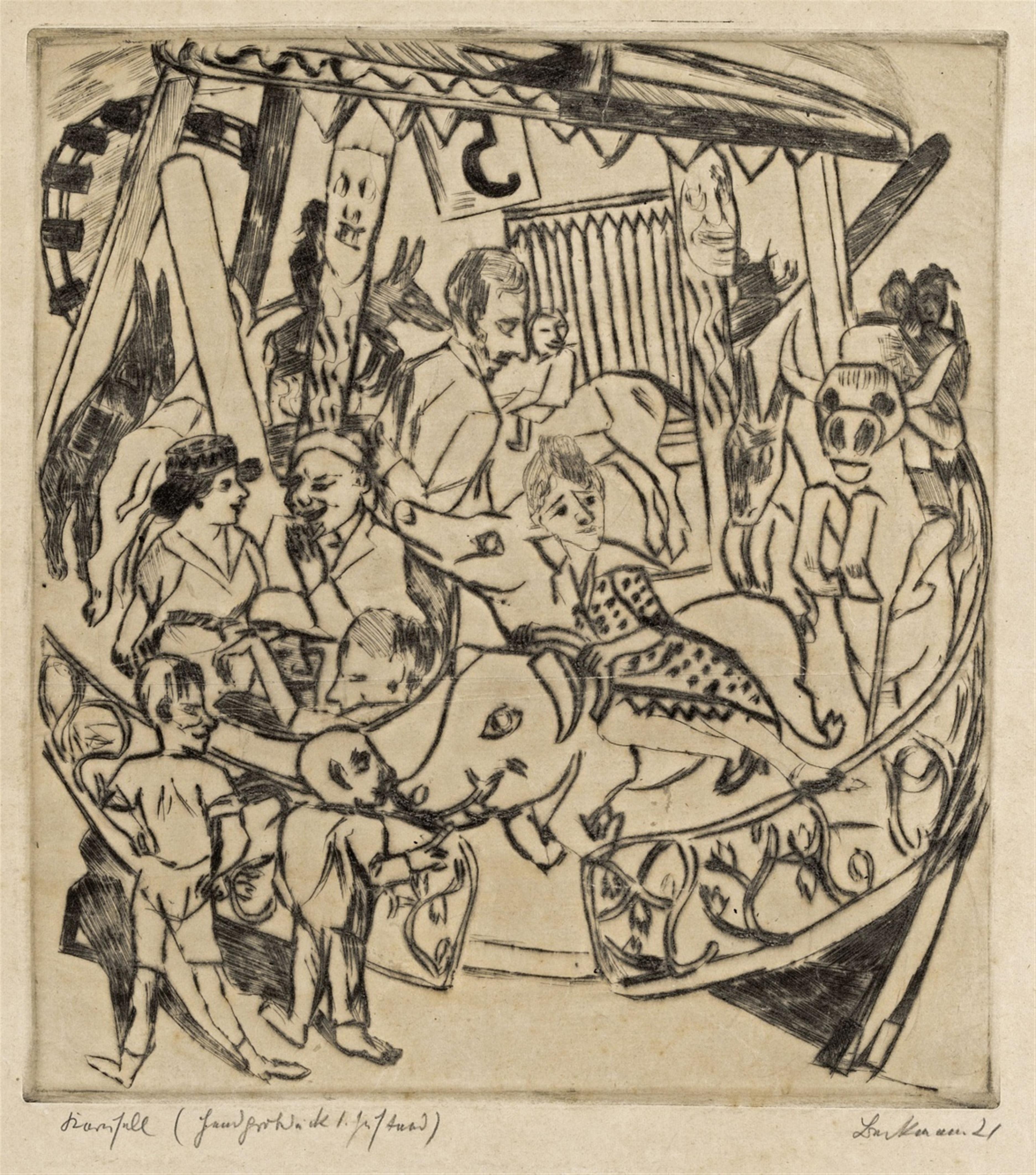Max Beckmann
Das Karussell
1921
Etching on Japan paper with cropped watermark "R" 28.5 x 25.4 cm (44.7 x 37 cm) Framed under glass. Signed, titled and inscribed 'Beckmann 21 Karussell (Handprobedruck I. Zustand)' in old German script. One of the few trial proofs before the edition of 200. Pl. 7 of the portfolio "Jahrmarkt", published by Marées-Gesellschaft at R. Piper & Co, Munich, in 1922 and printed by Franz Hanfstaengl, Munich. - With an unobtrusive print-related crease and minor marginal defects.
The present etching belongs to a 10-part series created in 1921 and published by Reinhard Piper as a portfolio entitled “Jahrmarkt”. Max Beckmann chose to use different plate formats within this series of prints, which is among the most important examples of the Expressionist's printed work. It already reveals the artist's highly expressive, angular formal idiom, which first arrived at its full development in the graphic works of the early 1920s. As was typical for Beckmann in those years, his works reveal a cynical fundamental attitude and an unmistakable critique of his time. Acrobats and showpeople in costume and make-up inhabit Beckmann's world-as-stage, which presents itself to viewers in a kaleidoscope-like manner. In this context the thematic complex of the funfair serves as a metaphor for life in general and reflects the chaos and divisiveness of post-World War I society. Along with friends and acquaintances of the artist, Beckmann himself repeatedly appears as a protagonist in the individual sheets, making clear that - as a funfair visitor - he is a part of the spectacle. This glimpse inside the colourful world of the showpeople is therefore to be interpreted in terms of the artist's taking stock of his own situation. Thus in the present work - the seventh sheet, entitled “Das Karussell” - we see him as the man in a hat sitting together with his wife Minna in the carousel car. Instead of children, adults have seated themselves on the carousel, and it turns round like a symbol of an aimless life. Here there is no more hope of being able to climb off the carousel spinning in circles than there is of arriving at a stopping point.
Catalogue Raisonné
Hofmeier 197 I.1.
Provenance
Galerie Nierendorf, Berlin; Private collection since, Berlin

